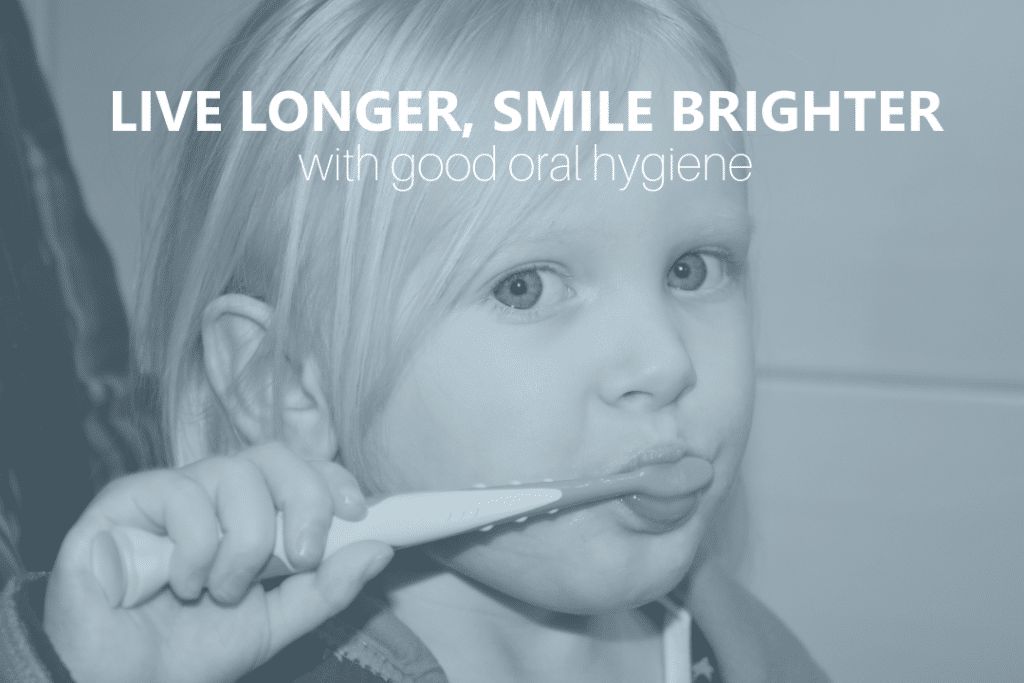The Importance of Oral Hygiene
Do you want to live longer, smile brighter, have more confidence, feel better and get your mouth feeling fresh throughout the day? If you do, this article is for you!
We’ve all been in that situation where someone has been breathing hot fire on you or maybe you were that person with the dragon breath. You can try to suppress it with gum or mints but now you turned into that person that is chomping on something as you’re presenting, talking on the phone, whispering in someone’s ear, etc... There is only one true answer to your problems, practice better oral hygiene!
When we talk about oral hygiene what exactly does this mean? According to dictionary.com, the definition is the state or practice of keeping the mouth cavity in a healthy condition, as by a regular program of brushing and flossing the teeth combined with periodic examinations by a dentist.
Possible Health Problems
You’ve been told throughout your life that good oral hygiene is imperative in keeping your teeth and gums healthy. Did you know your oral hygiene habits can help prevent other diseases as well? If not kept at reasonable levels by proper oral care, the bacteria in your mouth can travel to other parts of your body and cause health problems such as:
- Increased risk of stroke – Harmful bacteria in your mouth can make you more susceptible to blood clots, thus increasing your chance of a stroke.
- Increased risk of dementia – Studies show a relationship between people who lost more teeth before the age of 35 and an increased risk of dementia. They also show that Adults with gingivitis perform worse on memory tests and other cognitive skills than those with healthier gums and mouths.
- Severe diabetes mellitus – Severe periodontal disease often accompanies severe diabetes mellitus and is considered the 6th complication of diabetes.
- Pregnancy complications – Increased risk of having a pre-term baby or baby with low birth weight.
- Respiratory disease – Oral bacteria can be breathed into lungs and cause infections such as pneumonia or exacerbate existing conditions, such as COPD.
- Heart Disease - Inflammation associated with periodontal or gum disease can contribute to heart conditions and an increased risk of heart attack.
- Osteoporosis: Gum disease causes bone loss that can lead to tooth loss.
Best Practices
To help fight these issues here are some oral cleaning best practices:
- Treat Flossing as important as brushing – Flossing is not just for getting little pieces of food out of your teeth. It’s for stimulating the gums, reducing plaque and to help lower inflammation in the area.
- Brush Properly – Doing a poor job of brushing is almost as bad as not brushing at all. Take your time, brush in small circles and make sure to touch as many areas of your teeth and gums as you can. NOTE: You’re not just brushing your teeth.
- Use the Right Toothbrush – Soft bristles, a small toothbrush head, and powered toothbrushes are recommended.
- Brush your Tongue – The junk on your tongue is the #1 cause of bad breath. Scrubbing your tongue can help fix this. NOTE: If you have a bad gag reflex buy a tongue scraper, which is a piece of floss to scrape your tongue.
- Consider Mouthwash – Mouthwash does 3 things that brushing, and flossing can’t do for you, which are:
1. Reduces mouth acid.
2. Helps cleans hard-to-brush or floss areas in and around the gums
3. Re-mineralizes the teeth. - See your Dentist regularly - In order to identify and manage potential problems before costly care is required. Remember that your dentist is your partner in oral health and be sure to keep him or her informed about medications you take and any changes in your overall health, so your oral hygiene can be tailored accordingly to maximize your health benefits.
Nutrition Changes
Doing these best practices will put you ahead of the curve with oral hygiene but sometimes it’s not enough to only practice good oral hygiene. There are some interesting nutrition changes that help to keep a healthy mouth.
Here are a few:
- Limit Soda, Coffee, and Alcohol – These beverages deplete the body’s level of calcium and their additives stain, dull and discolor teeth.
- Drink Tap Water rather than bottled water – If bottled water is your main source of drinking water, you could be missing the decay-preventive benefits of fluoride.
- Eat crunchy fruits and vegetables – High fiber fruits and veggies help cleanse your teeth and stimulate your gums. Citrus helps clean and increases salivation to name a few. There are slews of information on this topic.
- Increase your calcium intake - After age 20, both men and women lose more bone mass than they form so it is important to restore lost calcium with a daily supplement and by eating fruits and vegetables high in calcium, such as dark leafy greens. These foods will also help to lower the acid buildup in the saliva that can lead to the breakdown of tooth enamel.
Long-term Effects
Finally, I wanted to throw out some long-term benefits of making some changes to your oral hygiene:
1. Gain Years to Your Life by Flossing – My doctor told me a while back you can gain 7 years to your life expectancy by flossing, I’m reading it can add from 1.5 to 6 years online. I’m guessing they’ll never know the exact amount of time it can add but the facts are that flossing prevents the bacteria that can cause for example heart disease and by doing this it generally increases your life expectancy.
2. Save Money – Two yearly teeth cleanings are 100% covered on our Stoneridge Dental Plan when ‘in network’ and out of network is a very low cost (I believe I pay $10 per visit). Having your mouth ‘in check’ by practicing good oral hygiene will take those additional expenses away so you will not have to deal with cavities or other oral health-related problems that can drain your bank.
3. Boost your self-esteem and confidence - Decayed teeth and gum disease are often associated not only with an unsightly mouth but with very bad breath -- so bad it can affect your confidence, self-image, and self-esteem. With a healthy mouth that's free of gum disease and cavities, your quality of life is also bound to be better -- you can eat properly, sleep better, and concentrate with no aching teeth or mouth infections to distract you.
In closing, I had an enjoyable time doing a bit of research on this topic and I hope you’ll use this information to live a better more oral hygiene healthy life.
Special thanks to Cornerstone Dental, who is my dental provider, the provided some of the information used in this article!
Under the terms of this license, you are authorized to share and redistribute the content across various mediums, subject to adherence to the specified conditions: you must provide proper attribution to Stoneridge as the original creator in a manner that does not imply their endorsement of your use, the material is to be utilized solely for non-commercial purposes, and alterations, modifications, or derivative works based on the original material are strictly prohibited.
Responsibility rests with the licensee to ensure that their use of the material does not violate any other rights.






